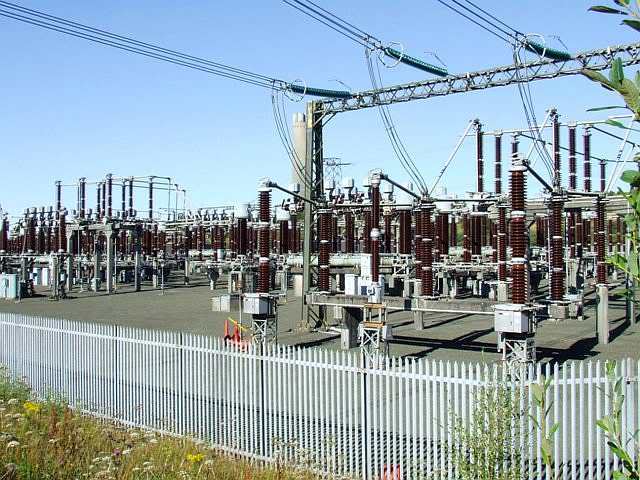The Debt Management Office (DMO) has issued a warning to the Federal Government (FG) against additional borrowing, citing that 73.5% of this year’s revenue will be used to service debt.
According to the DMO, this high Debt Service-to-Revenue ratio is unsustainable and poses a threat to debt sustainability.
The DMO recommended that the FG focus on increasing revenue generation to achieve a sustainable Debt Service-to-Revenue ratio. It suggested raising the projected FGN revenue from N10.49 trillion to about N15.5 trillion.
These recommendations were made after analyzing the nation’s debt profile in 2022.
DMO’s analysis revealed that the Total Public Debt-to-GDP ratio is projected to increase to 37.1% in 2023, mainly due to new borrowings, FGN Ways and Means at the CBN, and estimated Promissory Notes issuance.
While the baseline scenario indicates that the debt stock remains sustainable, the borrowing space has been reduced compared to the self-imposed debt limit of 40%.
The projected FGN Debt Service-to-Revenue ratio of 73.5% for 2023 exceeds the recommended threshold of 50% due to low revenue. This highlights the urgent need to significantly increase government revenue.
The DMO emphasized the importance of adhering to existing legislation on government borrowing, such as the Fiscal Responsibility Act 2007 and the Central Bank of Nigeria Act 2007, to moderate the growth rate of public debt.
Furthermore, the DMO called for a focus on revenue mobilization initiatives and reforms to increase the country’s tax revenue to GDP ratio.
It also suggested encouraging private sector involvement in funding infrastructure projects through Public-Private Partnerships (PPP) and reducing borrowing by privatization or sale of government assets.
Experts have supported the DMO’s caution against further borrowing, highlighting the precarious nature of the debt service-to-revenue ratio. They emphasized the need for fiscal discipline, adherence to borrowing limits, and implementation of measures to improve revenue generation.
The DMO’s warning serves as a reminder of the challenges posed by Nigeria’s high debt burden. It underscores the importance of pursuing sustainable revenue generation strategies and prudent fiscal management to ensure long-term debt sustainability and economic stability.
Results of 2022 MAC-DSA shows that the Total Public Debt-to GDP ratio is projected to increase to 37.1 percent in 2023 relative to 23.4 percent as at September 2022, due to the inclusion of the N8.80 trillion (New Borrowings)
for the year 2023, the FGN Ways and Means at the CBN of over N23 trillion and
estimated Promissory Notes issuance of N2.87 trillion in the Debt stock under the Baseline Scenario.
The Country’s Debt stock remains sustainable under these criteria, but the borrowing space has been reduced when compared to the Nigeria’s self-imposed debt limit of 40 percent set in the MTDS, 2020-2023.
On the other hand, FGN Debt Service-to-Revenue ratio at 73.5 percent in 2023 which exceeds the recommended threshold of 50 percent due to low revenue, which means that there is need to significantly increase Government revenue.
Under the Alternative Scenario, the Total Public Debt-to-GDP ratio at 45.4 percent in 2023 exceeds the Nigeria’s self-imposed debt limit of 40 percent, while the FGN Debt Service-to-Revenue also exceeds the recommended threshold of 50 percent.
Based on the analysis of the results of the 2022 MAC-DSA, the DMO recommends that:
1. Although the Baseline analysis projects Total Public Debt-to-GDP ratio at 37.1 percent for 2023 indicating a borrowing space of 2.9 percent (equivalent of about N14.66 trillion) when compared to the self-imposed limit of 40 percent, it is recommended that this should not be used as a basis for higher level of borrowing as was the case in the 2023 Budget.
This is because the outcome of the Shock Scenario, which is more realistic in the circumstances, exceeded the self-imposed limit.
2. The projected FGN Debt Service-to-Revenue ratio at 73.5 percent for 2023 is high and a threat to debt sustainability. It means that the revenue profile cannot support higher levels of borrowing. Attaining a sustainable FGN Debt Service-to-Revenue ratio would require an increase of FGN Revenue from N10.49 trillion projected in 2023 Budget to about N15.5 trillion.
3. With respect to expansion in fiscal deficit, there is need to strictly adhere to the provision of extant legislations on Government borrowing, especially the Fiscal Responsibility Act 2007 and Central Bank of Nigeria Act, 2007 as it relates to Ways and Means Advances, in order to moderate the growth rate of public debt.
4. There is urgent need to pay more attention to revenue generation by implementing far reaching revenue mobilization initiatives and reforms including the Strategic Revenue Growth Initiatives and all its pillars with a view to raising the country’s tax revenue to GDP ratio from about 7 percent (one of the lowest in the world) to that of its peer.
5. Government should encourage the private sector fund infrastructure projects through the Public-Private Partnership schemes and take out capital projects in the Budget that are being funded from borrowing, thereby reduce budget deficit and borrowing.
6. Government can reduce borrowing through privatization and/or sale of Government assets














